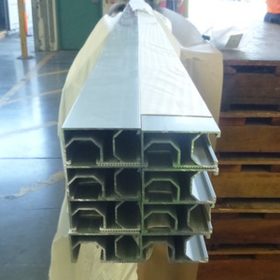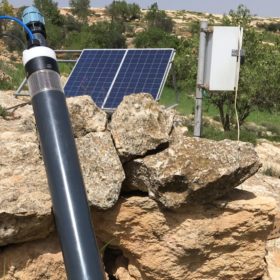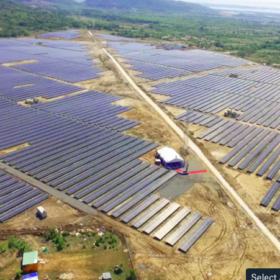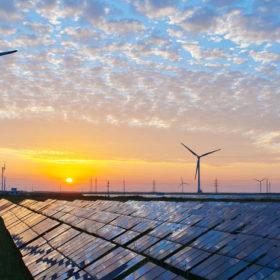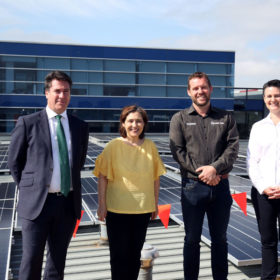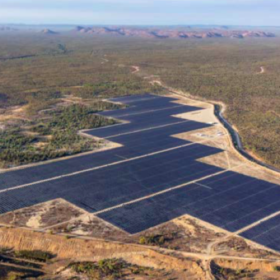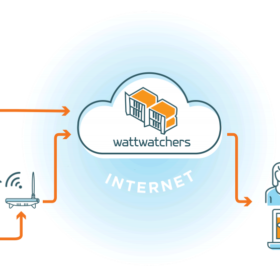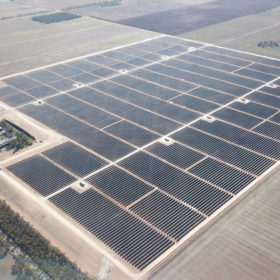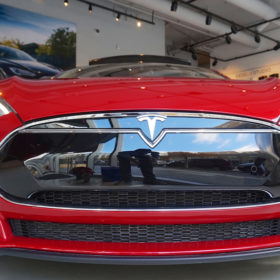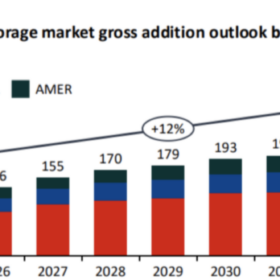Queensland, Victoria solar businesses burnt $1.3 million for duty evasion
Unnamed Queensland and Victoria solar businesses have been ordered to pay hefty fines, after being caught misclassifying solar mounting kits imported from China. Earlier this year, the Australian Border Force announced it was tightening screws on the dumping of aluminium extrusions, mostly used to mount solar panels.
A solar-powered irrigation pump with pay-as-you-go option
Comet-ME has developed a solar-powered submersible borehole piston pump for off-grid communities and smallholders to use for irrigation and domestic purposes. The device, compatible with PV systems from 300-900 W in size, can pump water from 45m with as little as 50 W of continuous solar power.
Vietnam to stop licensing large-scale solar projects
In a newly published policy document, Hanoi has urged regional governments and the country’s state-run utility, EVN, to suspend authorizations for new solar parks until further notice. Around 8.93 GW of utility-scale solar capacity is already approved for development in Vietnam, according to the Ministry of Industry and Trade.
Evergen, Solar Services Group partner to drive large-scale VPP deployment
Solar and battery optimization technology provider Evergen and solar battery provider Solar Service Group have joined forces to connect thousands of residential batteries across Australia. By delivering significant benefits to consumers, the joint venture hopes to boost the uptake home batteries nation-wide.
The collapse in Queensland renewables investment – the canary in the coal mine
Kicking off from the last quarter of 2016 Australia has experienced an amazing boom in renewable energy across both rooftop solar and utility-scale projects. Over the space of just five years Australia will have shifted from just 15% of our power from renewable energy (in 2016) to 30% by 2021.
Shared solar switched on at Melbourne apartment block
A microgrid installed on an apartment block in Melbourne will provide clean and affordable electricity to 52 low-income households. It is the first site of Ovida’s Community Energy Hubs project, which will deliver shared solar PV and batteries to more multi-tenanted buildings in the city.
Genex achieves financial close for Jemalong and refinancing for Kidston
Sydney-based developer Genex Power Limited (Genex) has fought its way back from several unlucky blows to achieve financial close for the 50MW Jemalong Solar Project and the refinancing of the 50 MW Kidston Solar One Project.
ARENA funds Wattwatchers toward more consumer empowerment
The Australian Renewable Energy Agency (ARENA) is set to fund Australian energy technology company Wattwatchers to the tune of $2.7 million. The funding will aid the development of a consumer-facing energy data hub, ‘My Energy Marketplace,’ another step forward in consumer energy empowerment.
Edify Energy solar farms to use AI trading platform for energy market participation
The Australian renewables developer has deployed AMS’ AI-backed trading platform across a 438 MW portfolio of utility-scale solar farms in Queensland and Victoria. The technology will help navigate the increasing price volatility and maximize returns in the National Electricity Market.
New app helps charge Tesla EVs when electricity is greener and cheaper
With its app already present in Belgium and the Netherlands, start-up Jedlix is introducing smart charging in France. The solution enables Tesla drivers to optimize their charging strategy.
